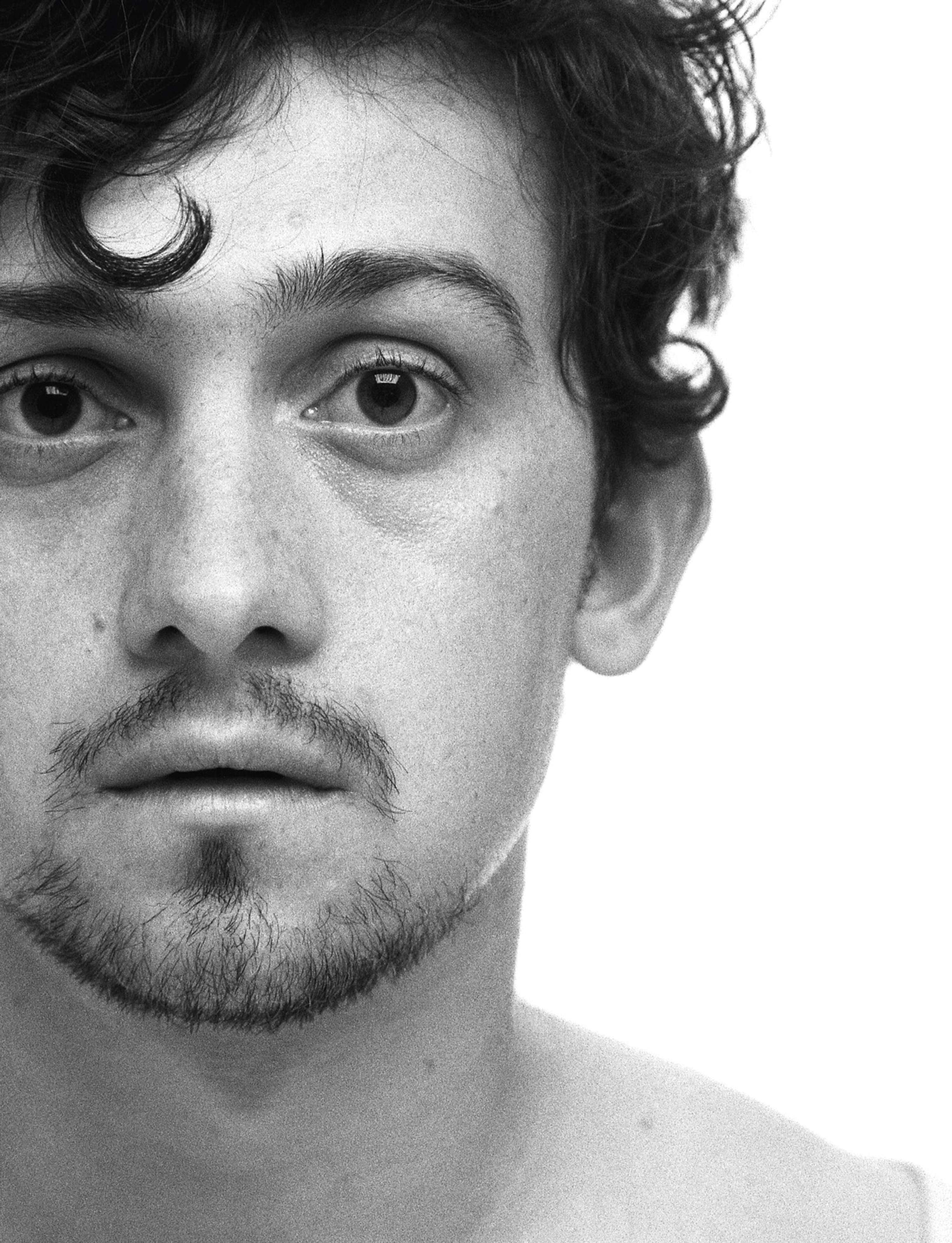Craig Roberts made his first major mark as a weirdo teen misfit in Richard Ayoade’s Submarine. Fast-forward a short number of years and he’s written and directed his first feature film, not bad for a 24-year-old Eminem fanboy. Just Jim stars Roberts in the lead role, a bland caricature of his ‘boring’ self growing up in Wales, led on an upsettingly surreal induction-to-cool by badass nutjob Emile Hirsche. It’s a sharp turn from some of the more mainstream projects Roberts has been drying his deadpan humour with – from 22 Jump Street and Neighbors to the lead role in Amazon Studios’ new series Red Oaks. The day we speak, Roberts is about to fly to France for the 26th Dinard British Film Festival, where Just Jim will go up against Owen Harris’ Kill Your Friends, in which he acts alongside Nicholas Hoult. “Yeah it’s bizarre” – but that’s alright when it’s what you’re into.
Tempe Nakiska: Are you in New York?
Craig Roberts: Yeah, I’m about to come back to the UK for about an hour, and then go to Dinard.
Tempe: You must be tired.
Craig: Yeah, I’m always exhausted though, I feel like I’m just in one big sleep paralysis, so it’s ne.
Tempe: You’re 24 and you’ve written and directed your own film, which is crazy. Why did you want to take that on so early in your career?
Craig: I don’t know, I didn’t really think about age. Xavier Dolan is a good example that you don’t really have to be a certain age to direct a movie, he was very young when he directed his first film and has directed many others since. I think you just have to know enough about film or have a mind for it, so I just wanted to do it I suppose, and take all the blame.
Tempe: Did you feel really ready for it?
Craig: It was a bit daunting when I really thought about it, but so many things were happening as it was such a low budget experience that I didn’t really have time to stop and think, “Oh no, what have I gotten myself into?” The hardest part of it is really the aftermath of making a film, I suppose. You kind of spend so much time making it and then the dialoguing once you’ve sent it out into the world, and you’re sort of not involved in your movie anymore. It’s very strange.
Tempe: Yeah, it would be a really weird feeling, you’re distanced from it now and everyone’s seen it and is commenting on it. Like you say, it’s out there. Do you still feel very protective of it?
Craig: It’s hard, you can’t really feel protective of it because there’s nothing you can do now. Although what I find interesting is that you spend so time working on something but the dialogue basically ends with the reviewer, you can’t respond to that in any kind of way, which is very strange because you can’t explain yourself or your work, I don’t really understand that process. But everyone’s allowed an opinion of course, so it’s interesting to hear what people think.
Tempe: Have you been paying much attention to reviews?
Craig: I pay attention to the good ones [laughs]. It’s so weird because someone could be having a really bad day and watch your movie and then hate it, whilst someone could be very happy that day and like it but it’s actually not as good as they think it is.
Tempe: How long was the idea for the lm banging around in your head before you set to work on it?
Craig: Quite a while, it took me a year to do everything. We filmed it last year but before then, probably a couple of months before, I had this idea of the Pied Piper, I was obsessed with that story of a man who at first seemed like he was doing good and then turned out to be evil. I was fascinated with that and started playing around with it.
Tempe: And it had something to do with an Eminem track, right?
Craig: Yeah, there’s a lyric in Lose Yourself that goes, “Best believe somebody’s paying the Pied Piper.” I listen to a lot of Eminem and that lyric just popped out at me, I then researched it more, and thanks to Eminem I now have a movie [laughs].
Tempe: So you’re a big fan?
Craig: Of Eminem? Yeah! That guy is great. It’s weird, he’s probably not the best of people to like now, in this generation, he’s not very politically correct or in any way trying to move things forward, but musically the guy is phenomenal.
Tempe: Nice, the issue that this interview will be in is largely themed around Detroit.
Craig: That’s really cool, Detroit is awesome.
Tempe: Have you been?
Craig: No I’ve not, but I just want to go to walk 8 Mile, to be honest. An Eminem pilgrimage.
Tempe: Is there a director you’ve worked with who you’d describe as a bit of a mentor in making the transition from actor to director?
Craig: I think people ask this question and expect me to say Richard Ayoade, but...
Tempe: Yeah, the word ‘protégé’ is getting thrown around a lot, I wonder if you want to clear that up a bit.
Craig: I love Richard, he’s awesome. He’s probably one of my favourite filmmakers in the UK. I think people can definitely make those comparisons because it’s a coming of age movie about a young kid who’s in Wales, I play the kid, he’s very deadpan dry and so there are definitely going to be comparisons. Richard is a genius, he’s a very clever guy, so for me to not go to him and ask questions would be silly, but he hasn’t mentored me in any kind of way, he’s not taught me what to do as far as directing, he did give me a very good book though.
Tempe: Which book was it?
Craig: It was by Alexander Mackendrick with a foreword by Scorsese and was called On Film-making, it’s very good.
Tempe: Cool, what about the funding process, was it tough?
Craig: Yes and no, it was part of a scheme, so as of yet I haven’t experienced actually trying to get funding for a film because the money was already in place. All I had to do was submit a script to the scheme and they would choose whether or not they wanted to do it. But probably not as hard as most movies, where you have to go around asking for people’s money.
Tempe: Yeah, do you think there is enough support for independent lmmakers, and budding or young filmmakers?
Craig: I mean we could always do with more, we really could. America do support it a lot, and a lot of good young directors come out of there, but it’s because they have more money for it. We have great filmmakers, but I’m sure there are a lot more we can discover. I love British cinema and we’re very much caught up in telling stories about social realism but I kind of want more of Jonathan Glazer’s kind of stuff, people who make weird shit. Like Under The Skin was so fucking weird, but at the same time it was so good, it was complete escapism and for me that feels like cinema as an experience, as opposed to seeing my life played back to me.
Tempe: Maybe it’s the British sense of humour, it’s so different to anywhere else in the world, especially America. Why are you so drawn to the dark stuff?
Craig: To dark humour? I’m going to quote Tarantino and say, “Because it’s so much fun.” I think dark is good, maybe that’s why I’m drawn to Eminem too, something I like about him is that, yeah, some things he says are terrible but he’s highlighting certain issues, I don’t think he’s saying it just to say it, I think he wants a reaction and is trying to pinpoint what’s bad about the world. I think cinema should be that kind of outlet as well. Yeah, cinema is enjoyable, but I definitely feel like they make movies as entertainment as opposed to art now, and Jonathan Glazer definitely does the latter, trying to do something different and push things forward. Dark stuff is fun, everybody has a dark side, so if you don’t like it you’re probably just afraid of seeing it reflected up there.





